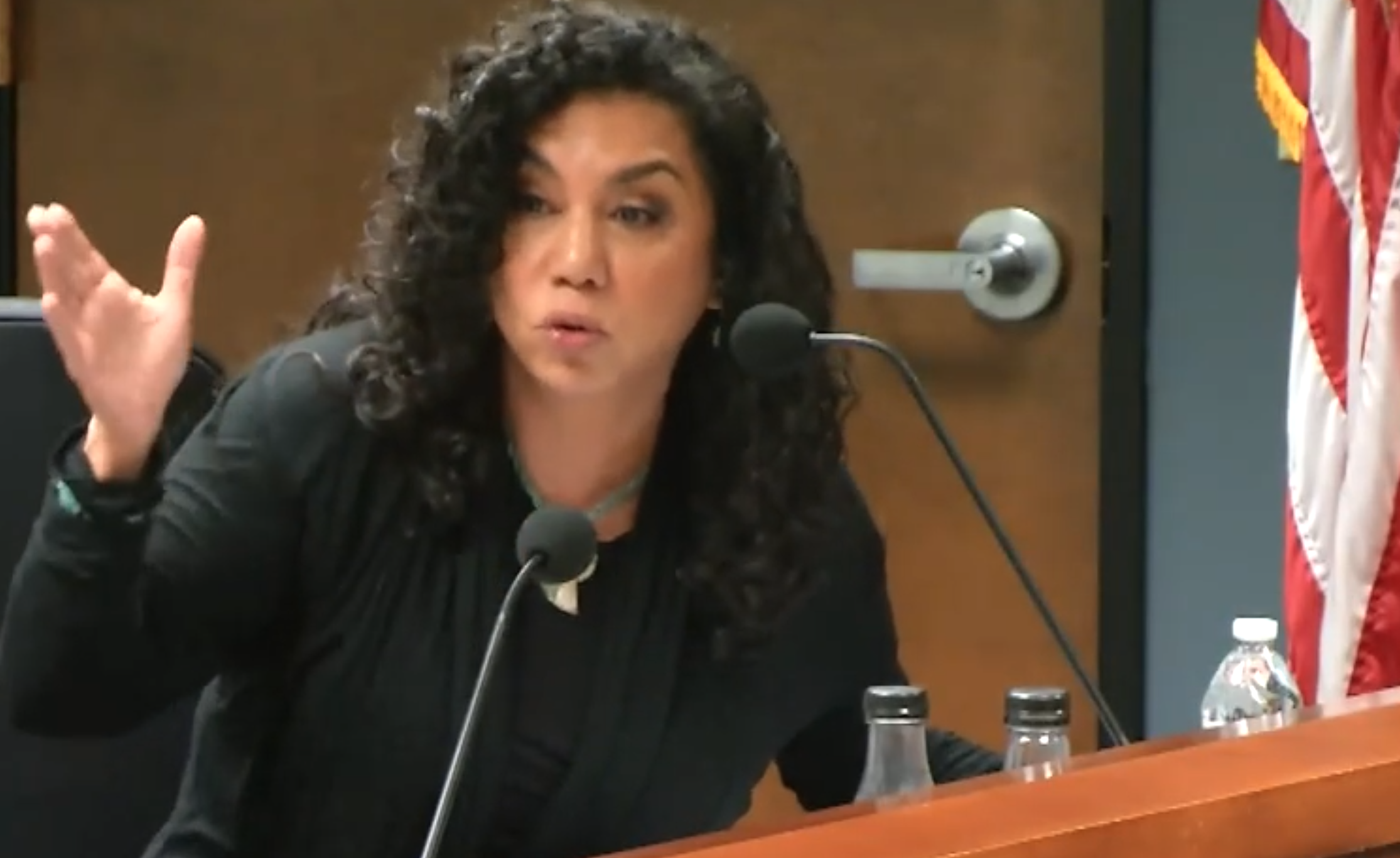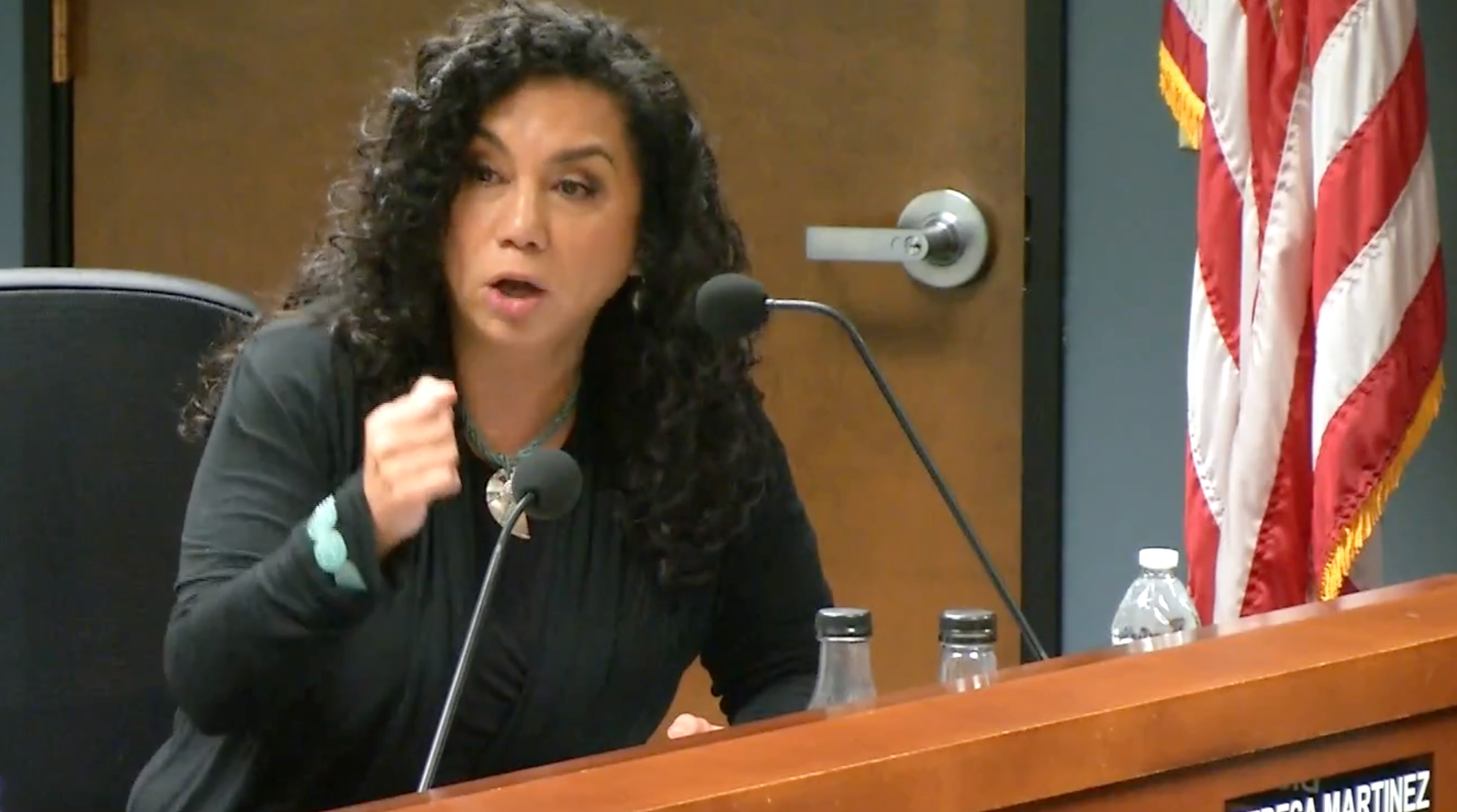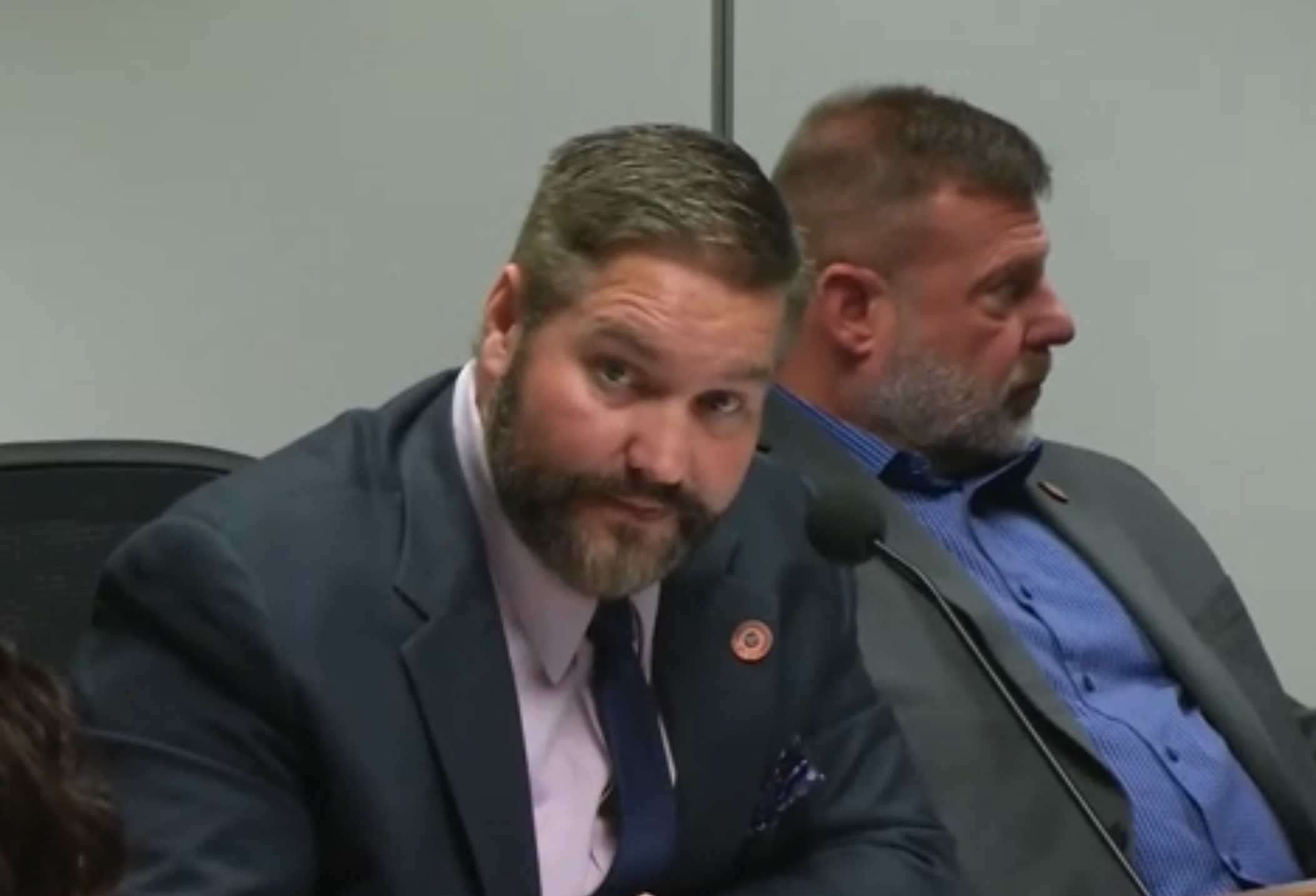I'm grateful for you.
How we're thriving...Get ready for August events!...Drag cabaret... Tucson art collective event.... and a free weekend event from LOOKOUT
The House Judicial Committee met to discuss a bill that upends the way we talk about gender in the state. It went off the rails into a slew of wrong statements and falsities.

On Wed. March 6, members of the House Judiciary Committee met to discuss SB1628, a bill dubbed across the nation by conservatives as a “women’s bill of rights.” In practicality, though, it is being used to restrict trans people from being recognized by their states.
The bill’s language, as it exists in Arizona, would forbid people from having gender markers different than their listed sex at birth, as well as remove any mention of “gender” from state rules, laws, or regulations and replace it with “sex.” It also aims to codify definitions for certain words such as "man," "woman," "girl," "boy," while establishing only two sexes and genders.
The bill doesn't allow the state to create another sex marker for people who are intersex or have other genetic abnormalities.
Similar laws have already been passed in Georgia and Iowa, and include the same language as Arizona’s bill, which would—among other things—have the impact of removing gender-bias crimes from police reports or discrimination complaints. (The FBI last year ranked Arizona as one of the highest in bias-related crimes. The agency gathers that data through local police records that would be removed if SB1628 went into law.)
The bill will most assuredly be vetoed by Gov. Katie Hobbs, who has previously vowed to veto any and all anti-LGBTQ+ bills that reach her desk. But the hearing was a lesson—especially for advocates and the public who packed the house—in how much disinformation elected officials can say on record without being fact-checked in real-time.
Here are some of the things said during the hearing that deserve public scrutiny:

Rep. Teresa Martinez’s claims on violence
During the judicial committee hearing, Rep. Teresa Martinez (R-Casa Grande) made broad assumptions around sex and gender. Specifically, she claimed that men were more violent than women because of testosterone: “Based on hormones that run through the body naturally, that women have less testosterone, therefore, are less violent,” she said. “Women are seen as less violent because of their hormones. And because of the frame of their body versus a man.”
It is true that many biologists have found a link between testosterone and violence. However, there is other research that suggests an imbalance in estrogen could also cause increased aggression. Also, there is new research that shows women—not men—are more aggressive, at least online. And scientists have also found that chromosomes, not testosterone, cause aggression.
What all of this competing information should say is that the immediate reasons for people to be violent are not as black and white as to whether or not testosterone is present.
But even if it were the case that testosterone, alone, is the reason for aggression, trans women on hormone therapy are able to get to estrogen levels to that of cisgender women. That would make them no more aggressive than Rep. Martinez.

Martinez’s hypothetical examples.
Martinez also implied that cisgender women have less rights in the event of being harassed by a trans woman in a bathroom: “So, if I'm a 16-year-old girl, and I go into my locker room, and I see somebody who is biologically not a girl, I feel harassed, and my harassment should be just as equal as their harassment…who has the final say?”
Martinez later clarified in saying that the cisgender woman in her hypothetical example could feel “harassed” by the presence of the transgender woman. She then made a statement that appeared to suggest that trans people have more legal rights in harassment claims.
Arizona state law defines harassment as communicating with someone in a way that “does in fact” seriously harm someone. This would be, for example, stalking or surveilling someone without a legitimate purpose, or following someone after asking them to stop. Simply being in the presence of someone who is different, be it biological or racial, is not a claim for criminal harassment.
In the rare case of a violent attack in a bathroom, there is no state law or regulation that gives transgender people preferential treatment or increased rights during police investigations or criminal procedures.
And violence in bathrooms caused by transgender people is incredibly rare, according to a study published by the Williams Institute at UCLA, the nation’s only academic research institution that focuses on LGBTQ+ social research. In the study, scientists found that transgender or nonbinary people, instead, are more likely to be the victims of verbal or physical harassment.
Such was the case in Oklahoma in Feb. this year, when two teenaged girls beat a nonbinary trans teen, Nex Benedict, who later died the next day.

Rep. Justin Heap’s question on trans prisoners.
In one moment during the hearing, Rep. Justin Heap (R-Mesa), asked a question on housing women prisoners: “If a biological male is convicted of a crime and is going to go to a state prison, but that person also identifies as female, should they be sent to a female prison consistent with their with their personal belief about their gender misgivings?”
It’s a common argument for conservatives to mention trans women being held in prisons with other women, but there is one problem with these examples, primarily it's not common, if at all.
According to the Arizona Department of Corrections and Rehabilitation’s protocols, transgender prisoners are housed not by how they identify, but what sex is listed on their birth certificate. And even then, it’s never a guarantee on the local level.
In Flagstaff, for example, LOOKOUT reported on how at least one trans woman who had the sex her state ID listed as female was still placed among men in the county jail.
In other cities or states, there have been separate prison dorms created specifically for transgender people, but that is the exception and not the norm.

An exchange between Reps. John Gilette and Selina Bliss.
Rep. John Gilette (R-Kingman) asked former nurse and chairperson of the committee, Rep. Selina Bliss (R-Prescott) about how sex is determined, genetically.
“Madam Chair, may I ask you a question, as the only doctor in the room,” he asked, except Bliss has her doctorate in education. “When a human is born, and if you can confirm this, it's either born xx or xy. Yes or no, Representative?”
“That's correct,” Bliss responded.
In overly broad terms, females have two “X” chromosomes, and males have one “X” and one “Y” chromosome. But that is not always the case. Biologists have argued for quite some time that chromosomes, alone, are an inaccurate way of defining sex. For example, there are males who can have two “X” chromosomes, but with a “Y” variant. There are females who can have a “Y" chromosome, as well. It’s estimated that one out of every 100 people have some form of chromosomal variant that doesn’t neatly fit into the binary of what sex is, when based on chromosomes, alone.
If you like independent and accountability-driven queer news, then you'll love LOOKOUT's weekly newsletter.
LOOKOUT Publications is a federally recognized nonprofit news outlet. EIN Number:92-3129757